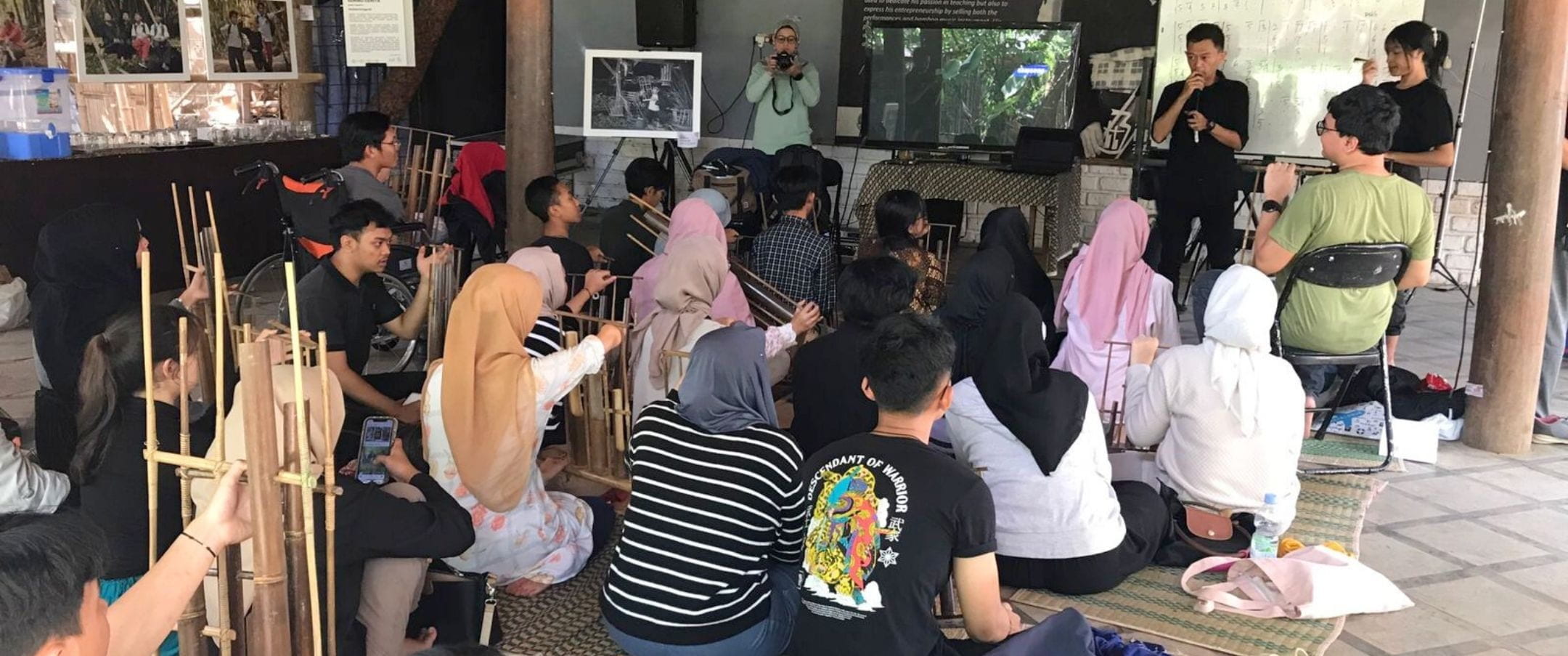Latest posts
- Curricula: Mithila art-focused local curriculum in Nepal 2 July 2025
- Register now: MAP International Online Conference 2025 1 June 2025
- Policy brief: Gira Ingoma book and policy brief: “The Culture We Want, for the Woman We Want” 28 November 2024
- Manuals and toolkits: GENPEACE Children’s Participation Module in the Development Process 13 November 2024
- Journal article: [Working Paper] Gira Ingoma – One Drum per Girl: The culture we want for the woman we want 30 October 2024
- Curricula: Beyond Tradition: Psychosocial Model 30 October 2024
- Curricula: Beyond Tradition Module: Revitalizing Lenong as a Model for Teaching Betawi Arts 30 October 2024
- Curricula: Beyond Tradition: Lenong Revitalisation as a Model for Teaching Betawi Cultural Arts 30 October 2024
- Beyond Tradition Lenong Performance “RAWR…! Kite Kagak Takut” 30 October 2024
- Journal article: [Working Paper] Facing Heaven – Déuda Folklore & Social Transformation in Nepal 30 October 2024
- Curricula: Building Community Curriculums 24 October 2024
- The Magic of Theatre Project Documentary 24 October 2024
MAP Webinar: Creating Dialogue to Inform Policy
29th February 2024
On Thursday, February 29, 2024, Mobile Arts for Peace (MAP) hosted a webinar entitled “Creating Dialogue to Inform Policy”. The webinar discussed the importance of open dialogue in shaping effective policies. In this webinar, we had key speakers from Kyrgyzstan and Indonesia, followed by a rich discussion on inter-generational topic.
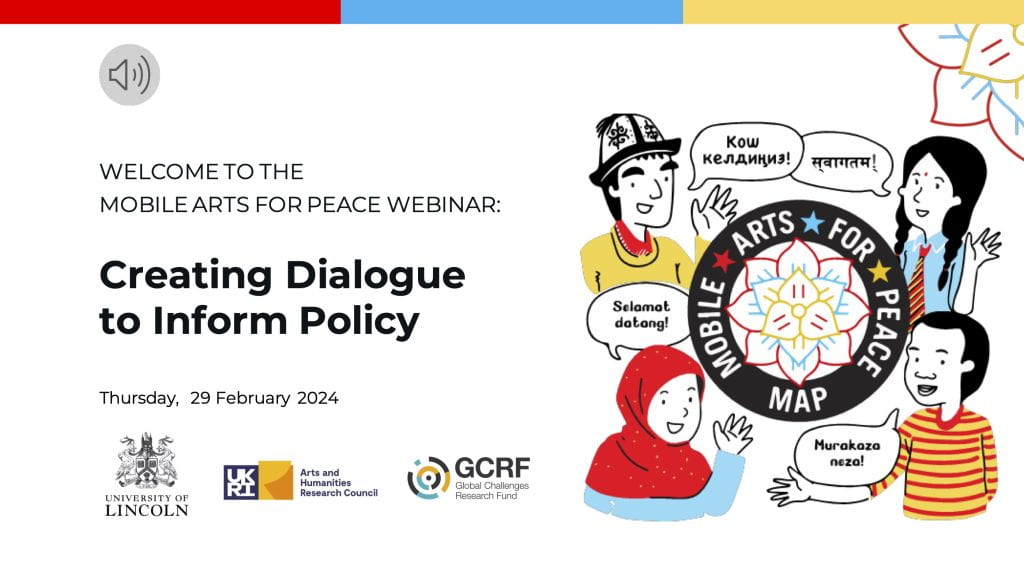
The webinar began with Ananda Breed, the Principal Investigator of MAP, providing an overview of the Mobile Arts for Peace (MAP) project: Informing the National Curriculum and Youth Policy for Peacebuilding in Kyrgyzstan, Rwanda, Indonesia, and Nepal.
Below are the key highlights from the presentations of our key speakers:
1. Dialogue through Art: Fostering regional & national dialogue with decision-makers
In the first session, Tajyka Shabdanova, the principal investigator of the Dialogue through Arts project,who is the presidents of the Foundation for Tolerance International (FTI) in Kyrgyzstan gave an overview of MAP in Kyrgyzstan and identified youth problems. She also shared MAP School Clubs in four regions explored different arts-based tools (such as forum theatre, participatory video sessions, songs, and traditional artistic practices) to generate regional and national dialogue sessions with educational and cultural decision makers.
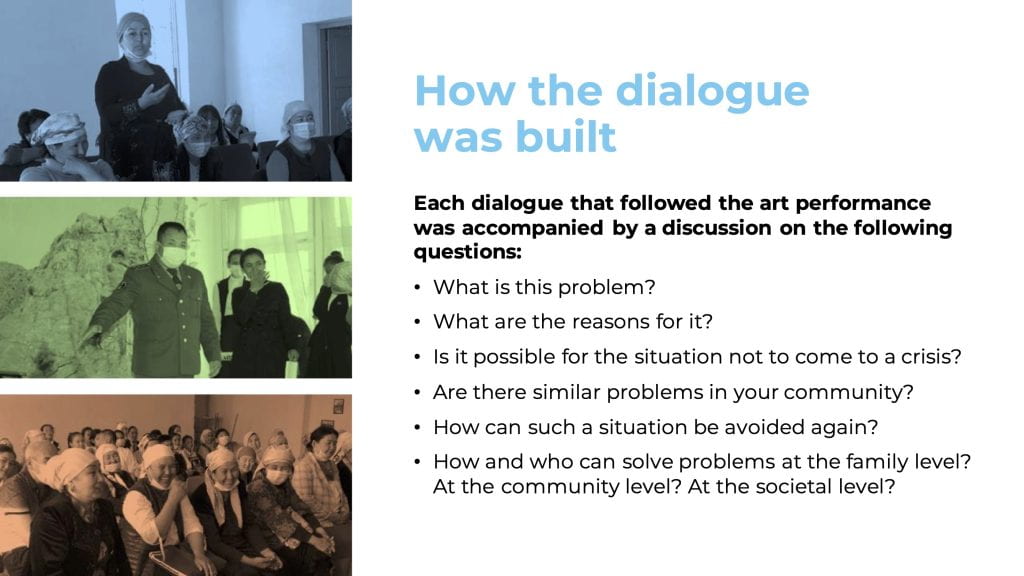
2. GENPEACE Project: Exploring an innovative arts-based community participatory planning (musrenbang) in Indonesia.
Dr. Sukanya Podder and Rendiansyah Putra Dinata will present one of the MAP Phase 2 projects, GENPEACE (Indonesia), which explores a two-way or dialogic communication between participating children and targeted policymakers. Through arts-based participatory methods, including musical drama with the traditional Bamboo Angklung instrument, digital videos involving song, dance, poetry recitation, and photo narrative exhibits, GENPEACE has been creating innovative structures for intergenerational communication focused on the Musrenbang (local participatory planning at the community level).
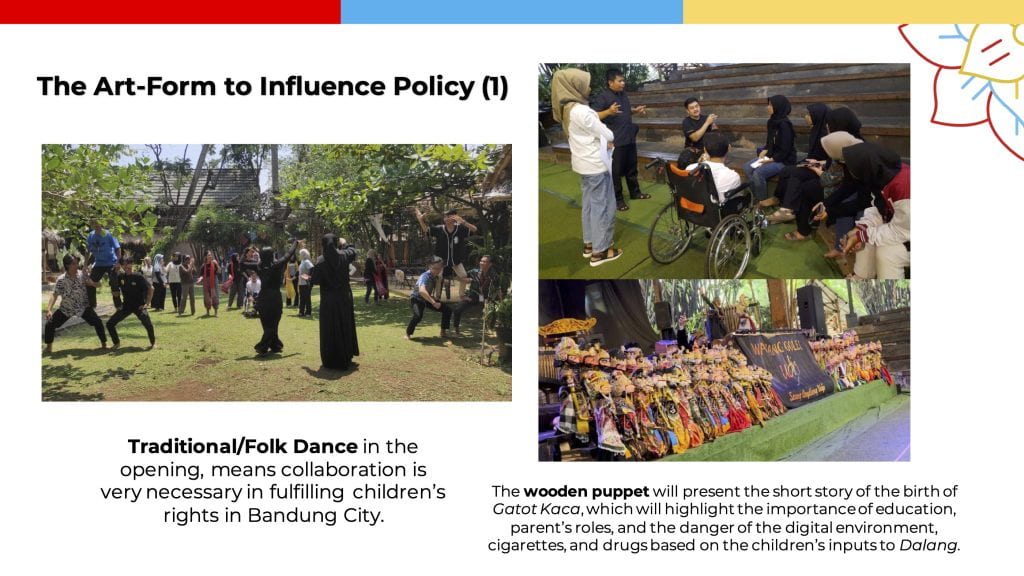
3. Digging deeper: Unpacking Inter-generational dialogue
Finally, the webinar invited a range of contributors to MAP to discuss two important aspects of dialogue in MAP: the strengths/limitations of inter-generational dialogue and the possibilities of digital technology in MAP. A range of contributors including a member of our International Advisory Board, Prof Tim Prentki, local decision makers from Kyrgyzstan, cultural artists from Indonesia, and young researchers who have contributed to Talking Back (on our website).
Slides of the MAP Webinar on “Creating Dialogue to Inform Curriculum”
Recording of the MAP Webinar on “Creating Dialogue to Inform Curriculum”
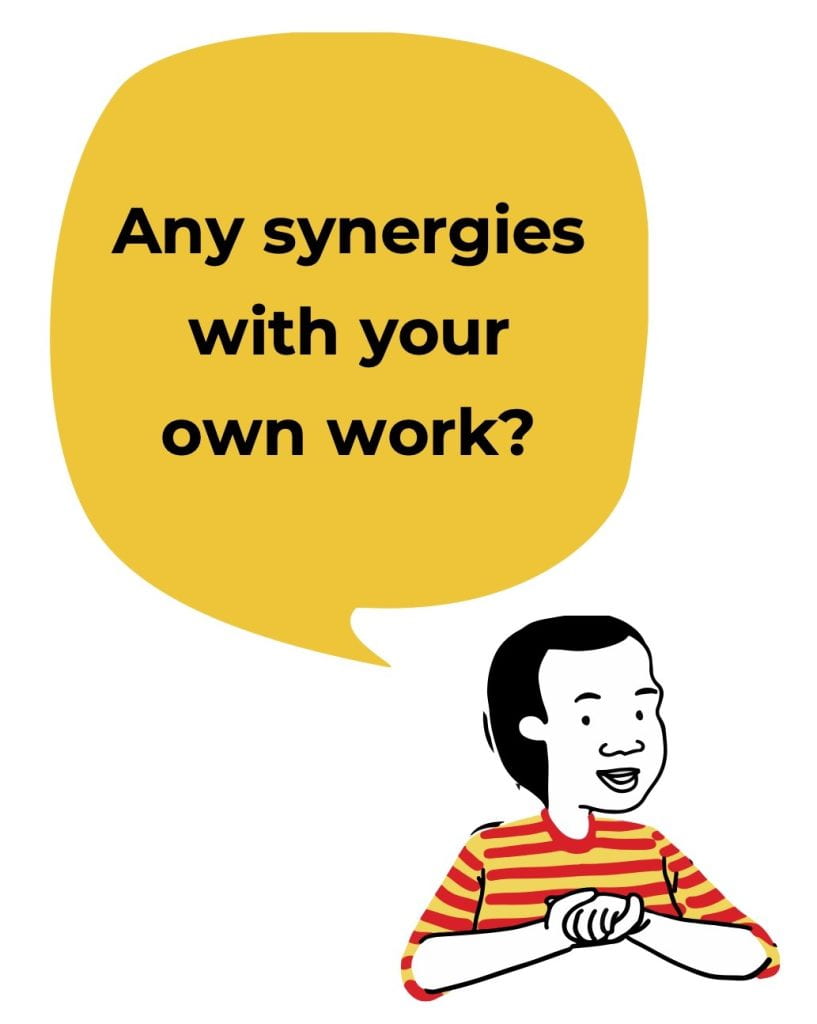
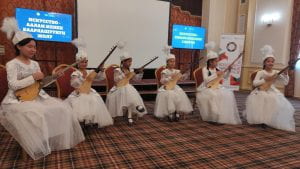
Dialogue through Art
Advocacy for priority youth issues, raising topics using arts-based tools and making recommendations at regional and national levels.
